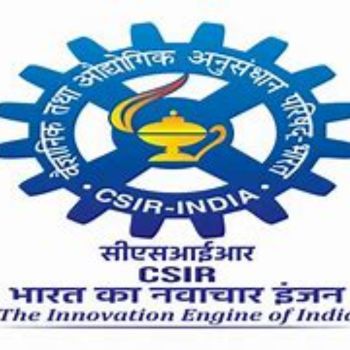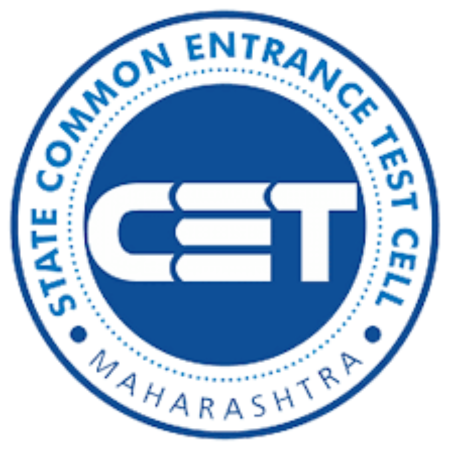A Ph.D. in Information Systems is the most prestigious academic qualification in the pursuit to understand how organizations develop, deploy, and utilize information technologies. The Ph.D. program takes at least 3 years to complete, and on successful completion of a PhD, the researcher will have iteratively completed advanced coursework that comprises their qualification, and conducted original research, culminating in a written thesis, which offers new knowledge to the academic knowledge base of the field.
To be eligible for admission, a candidate is expected to have a related master's degree, such as M.Tech in IT, MCA, MBA (Systems) or M.Sc Computer Science, and a respectable academic record (55% aggregate). Shortlisted candidates have generally met the OECD's entrance examination requirements (such as GATE for IITs and UGC-NET) as well as submitted a research proposal with sufficient rigor, but importantly, have participated in a research interview.
In India, leading institutes specializing in doctoral studies in Information Systems are provided by hospitals of research, development, and spread (such as the Indian Institute of Management Bangalore - IIMB), are provided by the International School of Information Management - ISIM, Pondicherry University offer leading-edge research labs, a well-known supervisor, and attractive scholarships.
A Ph.D. process involves considered judgment and independent original research, with (similar to other professions), can lead to a range of possibilities. After completing a Ph.D., those awarded may consider academic careers (as an Assistant/Associate Professor), take a position with an industry research laboratory (as an R&D Scientist or Data Strategy Consultant), and/or work as a lead professional (as Chief Information Officer) in finance, healthcare, or technology.
Table of Contents
- Ph.D Information Systems Key Highlights
- What is a Ph.D in Information Systems?
- Why Study Ph.D Information Systems?
- Who should study Ph.D in Information Systems?
- Ph.D Information Systems Eligibility Criteria
- Ph.D Information Systems Best Colleges in India
- Ph.D Information Systems Admission Process 2025
- Ph.D Information Systems Syllabus
- Ph.D Information Systems Job Opportunities in India
- Ph.D Information Systems FAQs
Ph.D Information Systems Key Highlights
Given below are some of the basic key highlights for the PhD in Information Systems:
What is a Ph.D in Information Systems?
The Ph.D Program in Information Systems is a research-based doctorate that focuses on the strategic, managerial, and technology-oriented application of information in organizations. The course content during the first several semesters includes: research methods, advanced database theory, the organizational context of IS, quantitative and qualitative analysis, and research ethics.
Central to your degree program will be your dissertation, which is an original report of an inquiry that helps answer a gap in the IS literature, such as research topics connected to digital transformation, cybersecurity governance, or AI-enabled decision-making. With the help of a faculty supervisor, you will conceive, experiment, collect and analyze data, and disseminate in reputable journals.
Why Study Ph.D Information Systems?
Pursuing a PhD in Information Systems can provide multiple pathways to the highest levels of research and academic career opportunities. Some of the reasons to pursue this journey include:
- Make a Difference Through Research: Help businesses and organizations understand how to use technology in smarter ways to stay ahead of the competition and bring new ideas to life.
- Teach and Guide Others: Become a professor or lecturer at top business or engineering colleges and help shape the next generation of students.
- Get Funded for Research: Work on exciting, paid research projects in fast-growing fields like IoT security, big data, and digital platforms.
- Take on Leadership Roles: Aim for high-level jobs like Chief Information Officer (CIO), Chief Digital Officer, or Head of Innovation in global companies.
- Give Expert Advice: Support governments or large companies by guiding them on smart technology use, digital rules, and managing their information the right way.
Who should study Ph.D in Information Systems?
Given below are some of the points on who should consider pursuing a PhD in Information Systems:
- Master’s holders in IT, Computing, Management, or relevant fields who are contemplating a research career.
- Individuals who want to transition from industry to academia or R&D, especially professionals with 2-3 years’ work experience.
- University faculty wishing to be faculty to tenure-track faculty at leading universities.
- Consultants/analysts of policy who want to direct an evidence-based IT strategy project
- Technology leaders seeking to lead digital innovation at the C-Suite level.
Ph.D Information Systems Eligibility Criteria
Before you apply, ensure you meet the foundational requirements that will prepare you for the rigorous curriculum and practical components of the Ph.D in Information Systems.
Pursue a Ph.D in Information Systems if you have:
- The candidate must have completed a Master’s degree, such as M.Tech, MCA, MBA‑Systems, or M.Sc. CS/IS with an aggregate of 55% marks 50% for reserved categories.
- Candidate must have qualified GATE (CS/IT), UGC‑NET (JRF), ICAR‑NET, DBT‑JRF, or institute‑specific test.
- One‑page synopsis outlining research problem, objectives, methodology, and expected contribution.
- Good command of academic English; TOEFL/IELTS may be required for co‑supervision with foreign collaborators.
Ph.D Information Systems Best Colleges in India
India offers several world‑class doctoral programs in IS. Below are the leading institutes:
Ph.D Information Systems Admission Process 2025
Follow these steps to secure your seat in the Ph.D Information Systems program at Indian Institute of Management Bangalore.
Step 1: Complete the form at iimb.ac.in/doctoral-programme-admission, choose “Information Systems,” and upload:
- Master’s transcripts (≥ 55%/50% SC‑ST)
- GATE‑CS/IT or UGC‑NET JRF score
- Concise IS research proposal (1–2 pages)
- An optional SOP highlighting your IS background
Step 2: Information Science faculty will review your academic record, test score and proposal—shortlisted candidates are emailed an interview invite.
Step 3: Interview & Presentation: Defend your proposal before the IS panel, demonstrating familiarity with IS theories and alignment to faculty expertise.
Step 4: On acceptance, verify originals, complete registration, and begin your Ph.D. with a INR 42,000/month stipend, contingency grant and accommodation.
Required Documents:
- 10th + 12th Standard Mark Sheets
- Degree Certificate and Mark Sheets
- Identity proof
- Passport-size photographs
- Design portfolio and Statement of Purpose (if required)
Ph.D Information Systems Syllabus
The curriculum combines core methodological training with specialized seminars and electives. Below is the list of core subjects that students choose at the Indian Institute of Management Bangalore.
Ph.D Information Systems Job Opportunities in India
Ph.D. IS graduates command leading roles in both academia and industry. Typical positions include:
Ph.D Information Systems FAQs
What is the minimum time needed to complete a Ph.D. in Information Systems?
The program typically takes 3 years following the start of candidacy, and most researchers will finish their work and degree in 5 years.
Does applying to the program require prior work experience?
No, students coming directly from master's programs can apply for the program; however, having 1-2 years of work experience either in the industry or academia research environment will improve the prospects of the application.
Are there fellowships for Ph.D Information Systems?
Yes, Institutes of Universities often provide fellowships, which are stipends of financial support that are paid monthly, ranging from INR 25000 to INR 35000 in addition to the expense of research grants and travel grants.
Is it possible to pursue the IS Ph.D. program on a part-time basis, or as a distance-learning program?
IS Ph.D. degrees usually require full-time residency, and only a few institutes of the University allow you to be a part-time candidate through special schemes available, whether agreed upon in admission or through accommodation.
What are the possible career paths after completion of a Ph.D. IS?
Graduates typically continue their careers as professors of IS, research scientists running an R&D lab, or as members of executive leadership or C-suite positions such as Chief Information Officer (CIO).











